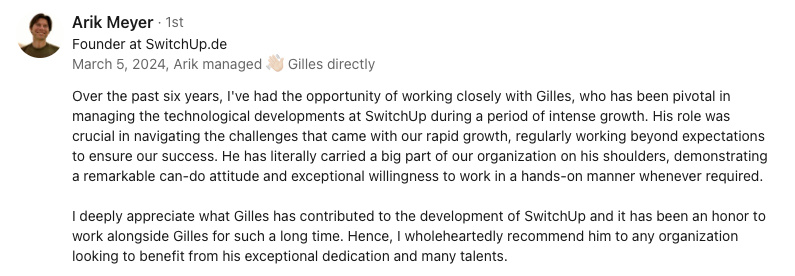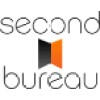Abstract:
The article emphasizes the strategic importance of embracing regional diversity for startups in Europe, highlighting how the continent's rich tapestry of cultures, languages, and histories can drive innovation and market expansion. It suggests that understanding and leveraging this diversity offers startups a competitive edge by enhancing creativity, problem-solving, and financial performance. The article illustrates this with examples, such as the multicultural vibrancy of cities like Barcelona and Berlin, which provide both challenges and opportunities for innovative communication and marketing strategies. It also underscores the role of diverse teams in fostering innovation, as shown by companies like Wise, Bolt, and Zalando, which integrate diversity into their operations to improve customer relations and product offerings. The article further discusses the necessity of developing Diversity, Equity, and Inclusion (DEI) strategies that reflect regional nuances, using frameworks like the Global Diversity and Inclusion Benchmarks and Hofstede's Model of Cultural Dimensions. It presents case studies of successful DEI implementation and advises on managing a diverse workforce, navigating regional regulations, and exploring cross-border collaborations. Future trends, such as the rise of remote work, are identified as opportunities to enhance workplace diversity and innovation. By integrating DEI initiatives sensitive to regional differences, startups can create inclusive environments that resonate with varied audiences, fostering sustained growth and innovation.
Navigating the varied cultures across Europe can be both challenging and rewarding for startups. The continent's mix of languages and histories offers a backdrop that can complicate operations or spark innovation. Consider the bustling streets of Barcelona or the cultural blend in Berlin—these places exemplify the diversity European startups encounter. Yet, within this complexity lies an advantage. Embracing diversity can boost creativity and innovation, giving startups a market edge.
Leveraging Regional Diversity in Europe's Startups
Understanding Europe's regional diversity is crucial for startups aiming to use it as a strategic asset. This diversity extends beyond demographics to include a mix of cultures, languages, and ethnicities that can drive innovation and enhance Diversity, Equity, and Inclusion (DEI) efforts.
Defining Regional Diversity in Europe
Europe's regional diversity is characterized by its wide range of cultures, languages, and ethnicities. Picture the vibrant streets of Barcelona, where Catalan and Spanish coexist, or Berlin's multicultural environment with numerous nationalities. These settings present both challenges and opportunities for startups. For instance, navigating various languages and cultural norms requires thoughtful communication and marketing. However, embracing this complexity can lead startups to creative ideas. The Journal of Economic Geography (2018) notes that regions with greater cultural diversity often experience higher innovation. By recognizing and utilizing this diversity, startups can create unique solutions that stand out in the market.
Europe's history has shaped its cultural identities and languages, offering a unique platform for innovation. Each region's customs, languages, and histories can be creatively harnessed. A study by Harvard Business Review (2013) highlights how this cultural mix can inspire new ideas. This historical context enriches the cultural landscape and encourages creative problem-solving. Startups incorporating these diverse elements can differentiate themselves with products and services that resonate across markets.
Understanding and embracing regional diversity can give startups a competitive edge through creativity and innovation. Diverse teams bring different perspectives that foster creativity and innovative strategies. The Diversity Wins report by McKinsey & Company (2020) shows that companies with diverse executive teams often perform better financially. For startups, a workforce reflecting regional diversity can drive creativity and effective business strategies. By integrating different viewpoints, startups can pave the way for groundbreaking innovations and sustained growth.
Leveraging Diversity to Strengthen Innovation
Diverse teams are crucial for fostering innovation. A study by Harvard Business Review (2013) highlights that teams with varied cultural backgrounds bring a range of perspectives, improving problem-solving. This diversity fuels creativity, enabling teams to devise innovative solutions to complex challenges. When diverse individuals work together, they question assumptions and combine their unique viewpoints into strong outcomes. For startups, this means better team dynamics and a competitive edge in developing new ideas.
The exchange of ideas from different backgrounds leads to unique products and services that appeal to a global audience. According to the Journal of Economic Geography (2018), regions with more cultural diversity show more innovation, as diverse influences merge to create distinctive offerings. Startups that harness this blend can craft products that attract customers across different markets. Incorporating local flavors and traditions can result in globally resonant products, expanding their reach.
Multicultural teams help European startups capture new markets and drive growth. With an understanding of diverse consumer bases, these startups can tailor their products and services to meet varied demands. Insights from McKinsey & Company's Diversity Matters (2015) report emphasize that diverse teams are crucial for accessing and expanding into new markets. By mirroring their target audiences' diversity, startups can adapt quickly to market changes and extend their reach. This approach not only increases market reach but also supports sustainable business growth.
Developing DEI Strategies that Reflect Regional Nuances
In Europe's diverse landscape, developing DEI strategies that respect regional differences requires a thoughtful approach. It's not just about understanding diversity but also implementing frameworks that resonate with local cultures and laws.
Frameworks for Regional DEI Initiatives
Creating DEI policies that consider regional differences involves strategic frameworks. The Global Diversity and Inclusion Benchmarks (GDIB) framework helps organizations create DEI initiatives that fit local contexts, ensuring they are inclusive and locally relevant. Companies like Siemens use GDIB to tailor policies across Europe. By adopting such a framework, startups can balance global DEI goals with regional specifics.
Hofstede's Model of Cultural Dimensions: This model is a valuable tool for tailoring DEI initiatives to regional variations. It considers cultural dimensions like individualism versus collectivism. Companies like Philips use Hofstede’s insights to create policies that resonate with diverse employees, fostering a more effective work environment. By using this model, startups can improve cultural awareness and develop effective DEI strategies.
European Commission’s Diversity Charters: These charters support diversity policies aligned with national contexts. They guide companies in meeting national diversity standards while promoting inclusivity. By aligning with these charters, startups ensure compliance with local laws and enhance their reputation as inclusive employers. The French Charter of Diversity, for example, shows how companies can meet legal requirements and improve their reputation. Embracing these charters lets startups build DEI strategies that are informed by local contexts and aligned with national standards.
Adapting DEI Policies to Local Needs
The success of DEI initiatives often depends on flexibility, allowing policies to adapt to local laws and cultural differences. This adaptability ensures compliance and effectiveness. Using frameworks like the Intercultural Development Inventory (IDI), companies can develop policies that are legally sound and culturally aligned, strengthening their standing with diverse employees and stakeholders.
Beyond legal compliance, tailoring DEI policies to local needs impacts employee engagement and satisfaction. When employees feel their cultural identities are acknowledged, engagement and productivity improve. The Kaleidoscope Group's Global Diversity, Equity, and Inclusion Framework links this approach to better workplace morale and productivity. By creating DEI strategies that honor local identities, startups boost workforce motivation.
Regional partnerships can significantly strengthen DEI strategies for European startups. These collaborations offer specialized knowledge and insights for effective DEI approaches. Partnering with regional diversity organizations provides tailored advice and resources, helping startups implement nuanced, impactful DEI policies. This approach enriches strategies and fosters a sense of community and shared purpose within the diverse European startup ecosystem.
Case Studies and Success Stories in DEI
Success Stories in DEI
Wise is a great example of a European startup effectively using regional diversity. By integrating diversity into its operations, Wise improves customer understanding and problem-solving. This diverse approach helps Wise connect with customers from various backgrounds and develop inclusive solutions. Wise's operations show how embracing diversity can enhance customer relations and innovation.
Bolt also uses regional hiring practices to stay culturally relevant and innovative. By hiring across different regions, Bolt adapts to local markets and integrates diverse perspectives into its services. This approach fosters cultural relevance and drives innovation, allowing Bolt to offer services that meet local needs while maintaining a competitive edge.
Zalando demonstrates a strong commitment to diversity and inclusion, creating a workplace that encourages creativity and innovation. Their inclusive environment fosters diverse inputs, promoting novel ideas and solutions. Zalando's strategies highlight the impact an inclusive workplace can have on driving creativity and organizational energy.
Diverse Approaches Across Tech Sectors
In the software-as-a-service (SaaS) sector, diverse teams create innovative software solutions for a broad audience. Teams with members from various backgrounds bring unique perspectives that enhance software design and functionality, appealing to diverse users. This diversity gives SaaS companies an edge, allowing them to tailor offerings to meet global needs.
Fintech startups leverage regional diversity to understand and serve the financial needs of varied customers. Diverse teams offer insights into different regions' financial habits, allowing startups to tailor solutions. This strategic use of diversity helps fintech companies refine offerings and capture wider markets by reaching underserved populations.
AI-focused startups benefit from diverse teams approaching AI challenges from multiple angles, enhancing algorithm development and application. This diversity is essential for creating AI solutions that are innovative and applicable to various real-world scenarios. As AI technology evolves, diverse perspectives will become increasingly important in shaping algorithm development, ensuring innovations are inclusive and fair.
Overcoming Challenges and Leveraging Opportunities
Navigating Europe's regional diversity presents both challenges and opportunities for startups. By understanding and addressing these complexities, startups can use diversity as a strategic advantage.
Managing a Regionally Diverse Workforce
Managing a diverse workforce in European startups poses unique challenges. Language barriers and cultural differences can hinder communication, leading to misunderstandings and inefficiency. To address these, startups should invest in cultural sensitivity training. This training fosters an inclusive environment by teaching team members about different cultural norms and communication strategies. Clear communication protocols ensure everyone is on the same page, regardless of their background. These steps promote a workplace culture based on respect and inclusivity.
Legal compliance is another challenge when managing a diverse workforce across regions. Navigating regional regulations requires legal expertise to ensure adherence to local employment laws. Startups benefit from consulting local legal experts with in-depth regional knowledge. This ensures compliance and avoids legal issues, building trust and transparency with employees.
Understanding regional preferences through market research is vital for startups in diverse markets. Employing local teams and conducting thorough market analysis are effective strategies. Local insights provide a nuanced understanding of cultural preferences and customer expectations. This knowledge allows startups to tailor products and services to meet each market's needs, enhancing customer satisfaction. By prioritizing local insights, startups can create offerings that resonate, ensuring long-term success and competitiveness.
Opportunities for Cross-Border Collaboration
Cross-border collaboration among European startups fuels innovation and growth. By pooling diverse expertise and resources, startups unlock opportunities for knowledge exchange leading to innovations. Collaborative projects draw on varied experiences and perspectives, enriching the innovation process. This synergy creates solutions that are innovative and culturally informed, expanding a startup's market reach.
Technology plays a key role in facilitating cross-border collaboration, managing geographically dispersed teams. Collaboration tools like video conferencing and cloud-based platforms bridge distances, allowing seamless teamwork. These tools enable real-time communication and collaboration, fostering an inclusive team culture that transcends regional boundaries. By integrating technology, startups maintain efficiency and innovation, regardless of geography.
Diverse leadership teams reflecting regional diversity are crucial for strategic growth and adaptability. Leaders with varied backgrounds bring a wealth of perspectives, enhancing decision-making and fostering inclusivity. This diversity at the leadership level allows startups to better understand and respond to regional market dynamics. By prioritizing diverse leadership, startups can adapt swiftly to market changes, ensuring robust growth and success.
Measuring the Impact of Regional Diversity in DEI
Evaluating DEI Initiatives
Evaluating Diversity, Equity, and Inclusion (DEI) initiatives in European startups involves conducting diversity audits and benchmarking. These methods provide a structured way to assess DEI status, identifying areas for improvement. The Global Diversity & Inclusion Benchmarks (GDIB) framework offers tools to align DEI efforts with industry standards and regional expectations. These audits and benchmarks help maintain a consistent path toward inclusive excellence.
Employee surveys and feedback mechanisms: These provide startups with direct insight into their workforce's perceptions and experiences. Platforms like Culture Amp and Peakon facilitate these engagements, turning feedback into actionable data. These surveys are not just diagnostic tools but enhance DEI by uncovering critical areas of concern. Analyzing this data allows startups to craft strategies that resonate with their teams, fostering an inclusive environment that promotes both satisfaction and innovation.
Diversity dashboards and analytics: These allow startups to track DEI metrics, offering a dynamic view of initiatives' long-term impacts. Tools like Tableau and Power BI visualize data related to recruitment, retention, and satisfaction across demographics. This empowers startups to make data-driven adjustments to DEI strategies, ensuring responsiveness to workforce dynamics. By leveraging analytics, startups show commitment to continuous improvement, aligning DEI efforts with broader goals.
Metrics and Tools for Assessing Impact
To understand the impact of regional diversity in DEI strategies, startups use key metrics like market share growth, innovation outputs, and employee engagement. These metrics provide a view of DEI effectiveness, helping quantify diversity's contribution to business success. By focusing on these indicators, startups assess diversity initiatives' influence on market position and culture, refocusing efforts where needed.
Third-party assessments and certifications: These help benchmark DEI initiatives against industry standards. Organizations like the European Institute for Managing Diversity offer certifications that validate DEI efforts, providing external credibility. These assessments help startups understand their position in the industry, identifying best practices from peers and encouraging continuous improvement aligned with diversity norms.
Partnerships with regional diversity organizations: These give startups insights into DEI strategies' effectiveness. Collaborations offer specialized knowledge and resources, enhancing effective DEI policy implementation. Engaging in these partnerships strengthens regional presence and fosters a community of inclusivity and shared learning within the European startup ecosystem.
Future Trends and Strategic Recommendations
As Europe's tech landscape evolves, staying aware of future trends in regional diversity is crucial for startups. These trends offer strategic opportunities for tech executives to effectively integrate diversity into broader DEI initiatives.
Emerging Trends in Regional Diversity
The rise of remote work is reshaping team structures, highlighting regional diversity's importance. Technology bridges distances, making diverse, dynamic teams essential. Remote work allows companies to draw talent from different regions, enhancing workplace diversity. This trend integrates more cultural perspectives into problem-solving, fostering innovation and expanding market reach. Digital connectivity ensures diverse teams can collaborate effectively, regardless of geography.
In this context, leadership skills must adapt to manage remote work's nuances. The demand for cross-cultural competencies is growing, as leaders navigate managing dispersed teams. Future-focused leadership development emphasizes these skills. As startups embrace diversity, leaders skilled in cross-cultural communication harness diverse teams' strengths, driving innovation and aligning diverse viewpoints.
Strategic Recommendations for Tech Executives
To harness regional diversity, tech executives should prioritize cross-cultural training and develop inclusive leadership. These approaches equip teams to function effectively in diverse environments, enhancing creativity and innovation. Inclusive leadership creates environments where diverse talent feels valued, leading to higher engagement and productivity. Investing in leadership that is diverse and inclusive ensures all voices are heard, driving success.
Investments in collaboration technology: Tools that facilitate communication and collaboration among diverse teams are essential for growth and innovation. Embracing technology supporting virtual collaboration overcomes geographical challenges, enabling cohesive teams. These investments yield innovation and competitive advantages, providing the infrastructure for seamless teamwork.
Building strategic partnerships across regions: This enhances resource sharing and innovation. Collaborations with regional diversity organizations offer fresh insights and shared resources, amplifying innovation. By partnering with entities sharing similar values, startups strengthen DEI strategies and expand into new markets. These partnerships foster a collaborative ecosystem, promoting inclusivity and innovation in Europe's tech landscape.
Embracing regional diversity in Europe's startup scene isn't just strategic—it's a key to innovation and growth. By leveraging the continent's unique mix of cultures, languages, and histories, startups can unlock creative solutions and expand market reach. Diverse teams enhance creativity, problem-solving, and financial success. Integrating DEI initiatives that respect regional nuances creates inclusive workplaces that resonate with varied audiences. Consider how your startup can use diversity to innovate and thrive. How might you incorporate regional diversity into your business strategy to stand out in a competitive market?
You might be interested by these articles:
- Shaping Tomorrow's Work through DEI
- DEI's Impact on Future Workplaces
- Driving Innovation and Growth: DEI Strategies in European Tech Startups





